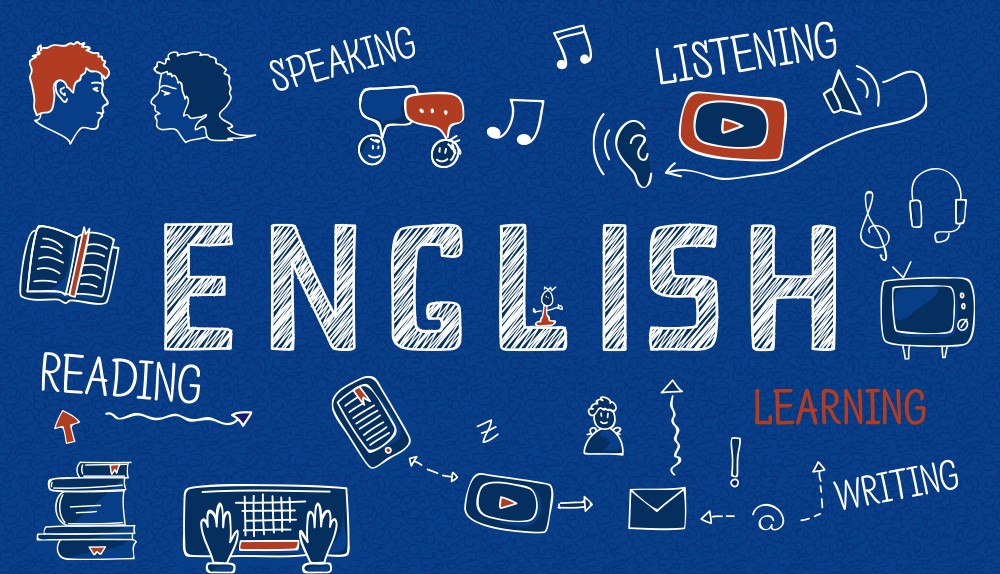Module ICSE 9, 10, 11 AND 12 GRAMMAR
- Home
- Module ICSE 9, 10, 11 AND 12 GRAMMAR

Module ICSE 9, 10, 11 AND 12 GRAMMAR
Reading
1) Texts (Literary and Nonliterary) covering different themes and registers for comprehension and inference. The themes may include:
- Self, Family, Home, Friends
- Neighbourhood and Community at large
- The Nation – diversity (socio-cultural, religious and ethnic, as well as linguistic), heritage
- Myths/legends/folktales)
- The World – India’s neighbours and other countries (their cultures, literature and customs)
- Adventure, Imagination and creativity
- Sports and Yoga
- Issues relating to Adolescence
- Science and Technology
- Peace and Harmony
- Travel and Tourism
- Mass Media
- Art and Culture
- Health and Reproductive health
- experience of children,
- Personalities & achievers
- Environmental concerns – water conservation, cleanliness and sanitation, Safety –personal safety & awareness about child abuse, conservation energy
2) Extensive and intensive reading of the texts.
Writing
- Simple messages, invitations, short paragraphs, letters (formal and informal) applications.
- Short compositions based on pictures.
- Simple narrative and descriptive pieces, etc.
- Creative writing: stories, poems, dialogues, etc.
- organise and structure thoughts in writing.
- Organise and structure meaningful sentences in a sequential manner.
- use of linkers such as ‘firstly’, ‘then’, ‘later’, ‘finally’, etc. to link sentences to indicate passage of time and provide a sense of closure.
- Age appropriate use of words and phrases.
- Follow process approach to writing i.e., planning, revising, reviewing, editing, rewriting.
Grammar and Vocabulary in Context
- Pronouns in the proper case, reflexive pronouns, pronoun number and person, pronoun – antecedent agreement to include indefinite pronouns.
- Subject-verb agreement with intervening phrases and clauses.
- Transitive and intransitive verbs.
- Tenses to convey time, sequence, state, and condition.
- Recognition of correct and incorrect /inappropriate shifts in verb tense.
- Vocabulary in context as a clue to the meaning of a word or phrase.
- Age-appropriate affixes and roots as clues to the meaning of a word.
- Dictionary and reference materials, print, digital and tactile, to find the pronunciation of a word or determine or clarify its precise meaning or its part of speech.
- Figures of speech in context.
CLASS 7
- Nouns
- Proper And Common Nouns
- Collective,Abstract And Compound Nouns
- Singular And Plural Nouns
- Possessive Nouns
- The Indefinite Article And Nouns
- The Definite Article And Nouns
- Pronouns
- Personal Pronouns
- Possessive Pronouns
- Reflexive And Emphatic Pronouns
- Verbs
- Action And Linking Verbs
- Transitive And Intransitive Verbs
- Phrasal Verbs
- Tenses
- Introduction To Tenses
- The Simple Tense
- Using The Simple Tense
- The Continuous Tense
- Using The Continuous Tense
- Present And Past Perfect Tenses, And Their Uses
- Voice
- Active And Passive Voices
- Adjectives
- Adjectives Of Qualityes, Quantityes And Number
- Possessive Adjectives
- The Positive, Comparative And Superlative Forms Of Adjectives
- Adverbs
- Adverbs Of Manner And Degree
- Adverbs Of Time And Frequencyes
- Adverbs Of Place
- Sentence And Phrase
- Difference Between A Sentence And A Phrase
- The Subject And Predicate Of A Sentence
- Subject-Verb Agreement
- Subject-Verb Agreement Rules
- Reported Speech
- Introduction To Reported Speech
- Reported Statements
- Reported Commands
- Reported Questions
- Conversion Of Tenses
- Changes In The Expressions Of Time
- Framing Questions
- Wh- Questions
- Yes-No Questions
- Prepositions
- Introduction To Prepositions
- Prepositions Of Time
- Prepositions Of Place, Position Or Location
- Prepositions Of Direction Or Movement
- Other Relations Shown Byes Prepositions
- Conjunction
- Introduction To Conjunctions
- Common Conjunctions 1
- Common Conjunctions 2
- Punctuations
- Introduction To Punctuations
- Punctuation Marks 1
- Punctuation Marks 2
- Punctuation Marks 3
- Passage Reading
- Poem Reading
- Writing A Notice
- Dialogue Writing
- Letter Writing
- Article Writing
Writing
- Simple messages, invitations, short paragraphs, letters (formal and informal) applications.
- Short compositions based on pictures.
- Simple narrative and descriptive pieces, etc.
- Creative writing: stories, poems, dialogues, etc.
- organise and structure thoughts in writing.
- Organise and structure meaningful sentences in a sequential manner.
- use of linkers such as ‘firstly’, ‘then’, ‘later’, ‘finally’, etc. to link sentences to indicate passage of time and provide a sense of closure.
- Age appropriate use of words and phrases.
- Follow process approach to writing i.e., planning, revising, reviewing, editing, rewriting.
CLASS 8
- Nouns
- Introduction
- Proper, Common, Collective And Abstract Nouns
- Countable And Uncountable Nouns
- Possessive And Appositive Nouns
- The Indefinite Article And Nouns
- The Definite Article And Nouns
- Determiners And Nouns
- Genders
- Gerunds
- Pronouns
- Introduction To Pronouns
- Personal Pronouns
- Types Of Personal Pronouns
- Introductory It
- Reflexive Pronouns
- Possessive Pronouns
- Indefinite Pronouns
- Demonstrative Pronouns
- Adjectives
- Adjectives Of Quality, Quantity And Number
- Possessive Adjectives
- The Positive, Comparative And Superlative Forms Of Adjectives
- Articles
- Introduction To Articles
- Determiners
- The Indefinite Article
- The Definite Article
- Verbs
- Introduction To Verbs
- Person And Number
- Tense
- Voice
- Mood
- Subject-Verb Agreement Rules
- Action And Linking Verbs
- Transitive And Intransitive Verbs
- Main And Helping Verbs
- Primary Helping Verbs – Be
- Primary Helping Verbs – Do And Have
- Modal Helping Verbs
- Regular And Irregular Verbs
- Participle, Gerund And Infinitive
- Phrasal Verbs
- Tenses
- Introduction To Tenses
- The Twelve Tenses
- Conjugation Of The Verb ‘Do’ In The Simple Tense
- Usage Of The Simple Tense
- Conjugation Of The Verb ‘Do’ In The Continuous Tense
- Usage Of The Continuous Tense
- Conjugation Of The Verb ‘Do’ In The Perfect Tense
- Usage Of The Perfect Tense
- Conjugation Of The Verb ‘Do’ In The Perfect Continuous Tense
- Usage Of The Perfect Continuous Tense
- Adverbs
- Introduction To Adverbs
- Simple Adverbs And Interrogative Adverbs
- Adverbs Of Manner And Degree
- Adverbs Of Time And Frequency
- Adverbs Of Place, Affirmation, Negation And Reason
- The Positive, Comparative And Superlative
- Prepositions
- Introduction To Prepositions
- Purpose Of Prepositions
- The Preposition At
- The Preposition In
- The Preposition On
- Other Common Prepositions 1
- Other Common Prepositions 2
- Other Common Prepositions 3
- Other Common Prepositions 4
- Other Common Prepositions 5
- Conjunctions
- Introduction To Conjunctions
- Coordinating Conjunctions
- Coordinating Conjunctions – Fanboys
- Subordinating Conjunctions
- Subordinating Conjunctions Of Time And Place
- Subordinating Conjunctions Of Reason, Purpose, Result And Condition
- Subordinating Conjunctions Of Comparison, Contrast And Uncertainty
- Correlative Conjunctions
- Transition Words/Phrases
- Interjections
- Introduction
- Interjection
- Kinds Of Sentences
- Introduction To Sentences
- The Subject And Predicate Of A Sentence
- Division Of Sentences On The Basis Of Purpose
- Division Of Sentences On The Basis Of Structure – Simple Sentences
- Division Of Sentences On The Basis Of Structure – Compound Sentences
- Division Of Sentences On The Basis Of Structure – Complex Sentences
- Introduction To Conditional Sentences
- The Zero, First, Second And Third Conditionals
- Phrases And Clauses
- Introduction To Clauses
- Clauses – Independent And Dependent
- Functions Of Dependent Clauses
- Introduction To Phrases
- Functions Of Different Phrases
- Active And Passive Voice
- Direct And Indirect Speech
- Reporting Verbs
- Introduction
- Tense Change
- Modal Verb Forms
- Question Tags
- Punctuations
- Introduction To Punctuations
- Full Stop Or Period
- Interrogation And Exclamation Marks
- Colon
- Semicolon
- Comma
- Parentheses And Hyphen
- Apostrophe And Inverted Commas
- Reported Speech
- Introduction To Reported Speech
- Reported Statements
- Reported Commands
- Reported Questions
- Conversion Of Tenses
- Changes In The Expressions Of Time
- Passage Reading
- Poem Reading
- Report Writing
- Notice Writing
- Letter Writing
- Article Writing
CLASS 9
ICSE Class 9 , 10 , 11, and 12 students have 2 papers on the English language.
Papers Subject Name Marks Time duration Paper 1 English Language 80 2 Hours Internal Assessment 20 – Paper 2 Literature in English 80 2 Hours Internal Assessment 20 – English Language
Topic Marks 1. Composition 80 2. Letter 3. (a) Notice; (b) E-mail 4. Unseen Prose Passage 5. Grammar INTERNAL ASSESSMENT
Listening Skills (10) + Speaking Skills (10)20 TOTAL 100 5. Grammar
INTERNAL ASSESSMENT
Listening Skills (10) + Speaking Skills (10)20
TOTAL
100
CLASS 10
ENGLISH LANGUAGE
Topic | Marks |
1. Composition | 80 |
2. Letter | |
3. (a) Notice; (b) E-mail | |
4. Unseen Prose Passage | |
5. Grammar | |
INTERNAL ASSESSMENT | 20 |
TOTAL | 100 |
Class Starting:
Also Class timing once finalized will not be adjusted thereafter
Every Week One class. The timings will be finalized where majority of the students will be gathered.


